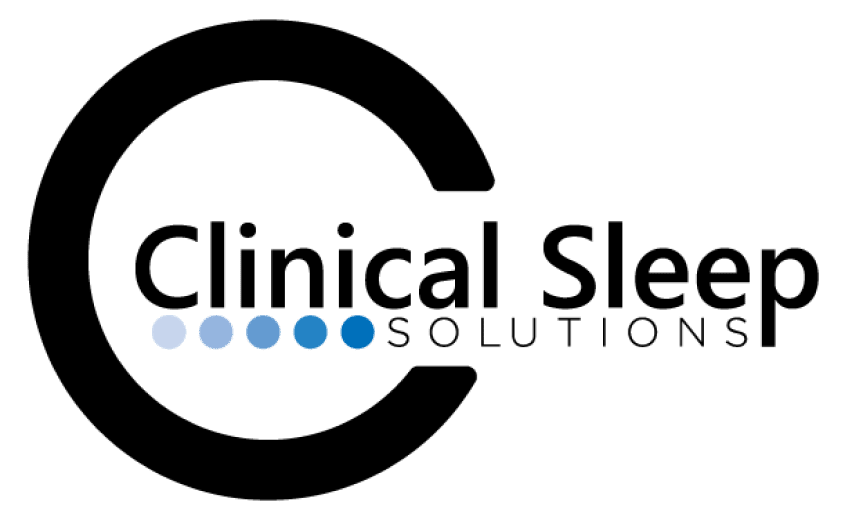What is Obstructive Sleep Apnea (OSA)?
Sleep apnea is a medical condition characterized by pauses in breathing or periods of shallow breathing during sleep.
Each pause can last for a few seconds to a few minutes and they happen many times a night. In the most common form, obstructive sleep apnea (OSA), the airway collapses or becomes blocked during sleep. This causes shallow breathing or breathing pauses. People with sleep apnea often snore loudly and feel tired even after a full night’s sleep.

You’re not alone: nearly 6 million Canadians have sleep apnea
Obstructive Sleep Apnea (OSA) is a significant, yet manageable health condition that disrupts your breathing during sleep. This occurs as the tissues in the throat relax excessively, leading to a blocked airway and breathing difficulties. These apneas, or pauses in breathing, can last from several seconds to minutes, reducing your oxygen intake.
Common signs of sleep apnea are loud snoring, abrupt awakenings with gasping, daytime sleepiness, and morning headaches. It’s also associated with serious long-term health risks, including heart disease, stroke, diabetes, hypertension, and more.
Fortunately, once diagnosed, sleep apnea can be effectively managed. The leading treatment for sleep apnea is CPAP therapy, a specialty of Clinical Sleep Solutions.
Stop Breathing
Low Oxygen
Brain Wakes Up
Symptoms & Health Risks
Identifying Symptoms and Warning Signs of Sleep Apnea
Obstructive Sleep Apnea (OSA) is different in each individual, but common symptoms include:
OSA can affect anyone, but some factors may increase your risk. Discover your risk level for sleep apnea with our specialized quiz.
Understanding the Health Risks Linked to OSA
Untreated Obstructive Sleep Apnea (OSA) significantly increases health risks, as evidenced by research. Patients with untreated OSA are:
Additional research highlights OSA’s association with various health conditions:
Shockingly, 80% of moderate to severe OSA cases remain undiagnosed.8 Seeking assessment and treatment for OSA is a crucial step in managing your health and improving your life quality.
1. Shahar et al. Am J Respir Crit Care Med. 2001. 2. Hartenbaum et al. National Sleep Foundation 2006. 3. Logan et al. J Hypertens 2001. 4. Sjostrom et al. Thorax 2002. 5. Einhorn et al. Endocr Pract. 2007. 6. Basta et al. J Clin Sleep Med 2008. 7. Santos et al. Pulmonology Journal 2012. 8. American Association Sleep Apnea Association
How Do You Know If You Have Sleep Apnea?
At Clinical Sleep Solutions, we collaborate with your doctor to make the assessment process for Obstructive Sleep Apnea (OSA) smoother after you receive your diagnosis. Here’s our approach:
- Our professionals will guide you on the next steps in CPAP therapy after your initial diagnosis.
- You’ll receive thorough guidance on using your CPAP equipment effectively at home, ensuring accurate data collection in your familiar sleeping environment.
- After a period of using the CPAP device, you’ll have a follow-up consultation with us to assess your adaptation and progress.
- We’ll work closely with your doctor throughout your therapy to ensure optimal treatment and adjustment of your CPAP therapy, as needed.
- A detailed report including insights from your therapy and ongoing treatment options will be provided. Our skilled team is here to review your results and offer professional advice throughout your therapy.
Discover more about our post-diagnosis CPAP therapy process and schedule your session today!
Understanding Treatment Options Based on Your Sleep Apnea Diagnosis
Understanding the nuances of your sleep apnea diagnosis is key to determining the most effective treatment. Sleep apnea is characterized by repeated breathing interruptions during sleep, affecting your oxygen levels and potentially leading to adverse symptoms and health risks.
Mild Sleep Apnea
If your sleep test showed 5-15 breathing disruptions per hour, your condition might be classified as mild. While some patients with mild sleep apnea may not immediately face health concerns, treatment can be beneficial, especially if you’re at risk for heart disease, diabetes, or experiencing symptoms of poor sleep quality. Clinical Sleep Solutions, in collaboration with your physician, will guide you to an appropriate treatment plan.
Moderate Sleep Apnea
Experiencing 15-30 breathing disruptions per hour indicates moderate sleep apnea. Medical guidelines generally advise treatment for this level of severity, with CPAP therapy as the primary recommendation.
Severe Sleep Apnea
More than 30 breathing disruptions per hour suggest severe sleep apnea. Due to the considerable health risks associated with severe sleep apnea, CPAP therapy is strongly recommended in line with medical guidelines.
Note: Sleep apnea can progress over time due to factors like aging, changes in throat muscle tone, or weight gain. If you’re diagnosed with mild sleep apnea and choose to delay treatment, it’s important to plan for re-evaluation every 2-3 years to monitor any changes in your condition.
Addressing Sleep Apnea: Your Treatment Path
Once your doctor has confirmed your diagnosis of Obstructive Sleep Apnea, Clinical Sleep Solutions will assist you in tailoring a treatment plan suited to your specific needs. The primary aim of sleep apnea treatment is to prevent airway obstruction during sleep. While there are various treatment options, some are more effective than others.
CPAP therapy is widely regarded as the most effective means to treat sleep apnea. CPAP – ‘continuous positive airway pressure’ – involves a compact device by your bedside that generates a steady air stream, maintaining an open airway as you sleep. This air is delivered through a tube connected to a mask you wear nightly. Modern advancements in CPAP technology have greatly enhanced the comfort of this treatment.
For those with Mild OSA, alternative treatments might be an option, especially if your symptoms are not significantly impacting your quality of life or if you’re not at heightened risk for other conditions like heart disease or diabetes.
Treating sleep apnea is a long-term commitment, but one that many find incredibly rewarding. Our patients frequently report transformative experiences with CPAP therapy, citing substantial improvements in their overall quality of life.

Hear from Our Patients: Real Stories, Real Results
Helping British Columbia Breathe Easier
From connecting your sleep apnea diagnosis to your post-diagnosis CPAP therapy personalization, Clinical Sleep Solutions is dedicated to supporting you on your path to better sleep health.
Begin your journey by reaching out to learn more about a post-diagnosis CPAP therapy consultation.
